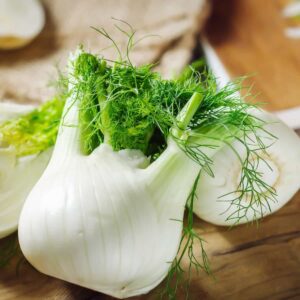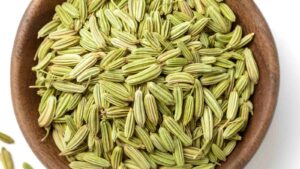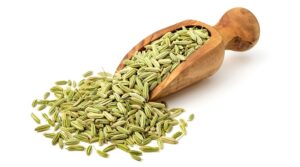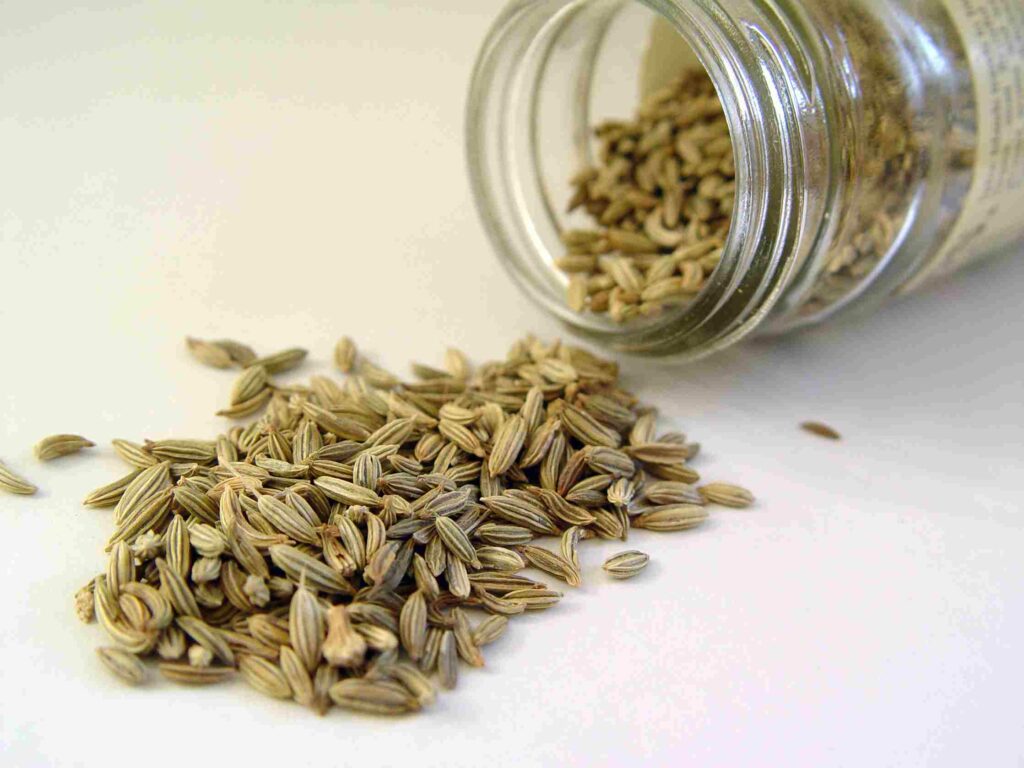Do you like the taste of fennel? This spice is used in a lot of different dishes, and for good reason – it tastes great! But do you know what else fennel seeds are good for? They have a lot of health benefits! In this blog post, we will discuss everything you need to know about these seeds. We will talk about their nutritional value, how they can benefit your health and some recipes that include this spice.
Contents
What Are Fennel Seeds?

Fennel seeds, also known as anise seeds, are a common ingredient in many cuisines around the world. In fact, fennel is one of the most commonly used herbs in European kitchens. The seeds are a member of the parsley family and are used mainly for their anise flavor.
They can be eaten as is or used in sauces, soups, stews, and other dishes. The seeds are also used to add flavor to bread and pastries. There are many different types of fennel, but the most common type is the Florence fennel. The Florence has small, dark green seeds that are covered with a thick white coating.
The seeds have a distinctive anise flavor and can be used in a variety of dishes. Some other types of fennel include the Turkish fennel, which has large purple seeds and a licorice-like taste, and the Chinese fennel, which has small yellow seeds and a slightly sweeter taste.
There are two main types of fennel seeds: sweet (or finocchio) and bitter. Sweet seeds are harvested from plants that have a sweeter taste, while bitter one is usually stronger in flavor. Both types of fennel can be used for flavoring and cooking purposes.
Nutritional Profile
100 gram of fennel contains:
- 340 Calories
- 14.2 grams of Protein
- 4.7 grams of Fat
- 53.9 grams of Carbohydrates
- 8.8 grams of Fiber
- 7 mg of Vitamin C (12% DV)
- 1166 IU of Vitamin A (23 % DV)
- 0.6 mg of Manganese (31 % DV)
- 0.6 mg of Iron (7 % DV)
- 1.5 mg of Magnesium (38 % DV)
- 320 mg of Calcium (32 % DV)
Health Benefits
Fennel seeds have long been used for medicinal purposes, and have been found to have a number of health benefits.
Reduces Inflammation
Fennel seeds are high in antioxidants, which can help reduce inflammation and pain. Studies have shown that these seeds can effectively reduce inflammation in the body by reducing the production of pro-inflammatory compounds.
Aids Digestion
These seeds are known to aid digestion due to their carminative properties. This means they help relax the intestinal muscles and reduce gas, bloating, and cramping. Additionally, the seeds can help stimulate digestive secretions which further aids in digestion.
Boosts Immune System
These seeds are full of vitamin C, which is vital for a healthy immune system. Studies have shown that taking a supplement the fennel seed extract can significantly boost the body’s immune system.
Helps Promote Milk Production
Fennel seeds have long been used by nursing mothers to help increase milk production. Studies have found that fennel seed extract can significantly increase the production of prolactin in lactating women, making it a safe and effective way to boost milk supply.
Improves Bone Health
The high levels of calcium and phosphorus found in fennel seeds make them beneficial for bone health. Studies have found that taking a fennel seed supplement can significantly improve bone mineral density, reducing the risk of osteoporosis and other bone-related diseases.
How To Incorporate Fennel Seeds Into Diet
 There are several ways by which you can enjoy these seeds. Here are some ideas:
There are several ways by which you can enjoy these seeds. Here are some ideas:
- Toasting the seeds: Toasting fennel seeds over low heat helps to enhance their flavor and makes them more fragrant. Once they are lightly toasted, you can sprinkle them on salads, soups, and pasta dishes or even add them to your favorite spice mix.
- Using Ground Fennel Seeds: You can also grind the fennel seeds for a more subtle, yet flavorful addition to dishes. For example, you can add ground fennel seed powder to your homemade marinades and dressings or sprinkle it onto vegetables before roasting them in the oven.
- Adding Fennel Seeds To Liquid Dishes: Fennel seeds are often added to liquid dishes such as stews and soups. This helps them release their flavor into the dish, giving it a unique flavor.
- Making Fennel Tea: You can also make fennel tea by steeping crushed or whole fennel seeds in hot water. This is a great way to enjoy the unique flavor of fennel and get some health benefits as well.
- Fennel Relish: If you want to add a bit of zing to your meals, you can make a delicious fennel relish by combining diced cooked vegetables with freshly ground fennel seeds, olive oil, and herbs such as oregano and basil.
How Much Fennel Seeds Per Day?
Although it is not advised to exceed the intake of these seeds, it is generally considered safe to consume up to 3 grams per day. This amount is equivalent to about one teaspoon of ground or two teaspoons of whole fennel seeds. It is important to note that consuming more than this recommended daily dosage may result in potential side effects.
Side Effects
 Although fennel seeds are considered safe for most people, there are some potential side effects that users should be aware of. Given below are some side effects:
Although fennel seeds are considered safe for most people, there are some potential side effects that users should be aware of. Given below are some side effects:
- Diarrhea: Fennel seeds can cause diarrhea in some people. It is possible that the essential oils present in these seeds act as a stimulant and affect digestion negatively.
- Allergic Reactions: Some people may be allergic to fennel seeds, particularly those with pollen allergies, which could lead to a variety of symptoms such as rashes and hives.
- Interactions With Other Medications: Fennel seeds can interact with certain medications, particularly those that affect estrogen levels in the body. If you are taking any medications, it is important to let your doctor know before consuming these seeds.
- Weight Gain: Some people may experience weight gain when they consume too much fennel seed. This could be due to its high-calorie content or because of its effects on metabolism and digestion.
Conclusion
Fennel seeds are a great addition to any kitchen. They have numerous benefits, from aiding digestion to helping reduce inflammation. Plus, their unique flavor makes them an excellent way to add zest to a variety of dishes. Whether you use them whole or ground, these seeds offer many healthful qualities that make them worth adding to your pantry.
Consider contacting FitMantra for additional information on nutrition and fitness. You can also get in touch with their nutrition experts through our online nutrition counseling, who can guide you through the process and help you achieve your fitness goals. You can also lose weight with the help of our weight loss program. Download our Fitness App on Android to know more about us.
